SERIES REVIEW – The latest, fourth season of “For All Mankind” takes another bold leap into the realm of alternate history and space exploration drama. Once again, the Apple TV+ series impressively blends nuanced “what if” political narrative, character drama and science fiction. This season continues the story of the alternate space race, while maintaining the exciting and complex characters developed in previous seasons. The continuation of the story reveals not only the future of space exploration, but also the depths of human relationships and conflict.
At what point did For All Mankind really mature? Perhaps as early as the sweeping first season, which took one of the most defining events in human history – the United States defeating the Soviet Union on the moon – and turned it into an alternate history in which Russia won the space race and revived the Cold War. Season 2, however, used this fascinating starting point to soar even higher, fusing human conflict and space exploration into a single ambitious story about a series of small, personal decisions that narrowly avoided the outbreak of World War III in the 1980s. When the third season moved the action to Mars another decade later, with most of the original cast still involved, it was easy to imagine the entire series becoming a laughingstock. Instead, the show embraced its own flawed (but three-dimensional) characters, incorporated a number of pithy political references (via a character linked to Elon Musk, for example), and perhaps relied too much on soap-opera-style dramatic twists and turns to get to a truly spectacular and dramatic finale.
Picking up where it left off, Season 4 of For All Mankind leaves nothing to chance
Picking up eight years after the events of Season 3, the Apple TV+ series (which, with a slight twist, could be retitled “2003: A Space Odyssey”) returns to an entirely new status quo at the turn of the century. A surprisingly well-functioning multinational effort back on Earth supports a now thriving Martian colony called Happy Valley, home to a small community of new and familiar faces. The traditional season-opening exposé takes viewers through the events of the intervening years, from Al Gore’s victory in the 2000 presidential election to the formation of the global “M-7 Alliance”. Following last season’s unification of the world’s superpowers by the three main players in the race to Mars, America and Russia, and the private space company Helios, it seems that Cold War tensions have finally eased and humanity can move on to the next phase of space exploration: mining nearby asteroids for their valuable resources.
As “For All Mankind” so ably demonstrated, the promise of cooperation and shared progress that defines this generation cannot completely erase humanity’s deep-seated flaws. The competing self-interests already on display in four episodes, the decades-old geopolitical rivalries, and the myriad personal conflicts make it clear that when “For All Mankind” is on full throttle, it easily outpaces most other science fiction series.
Shadows of the Past
It may come as a surprise to some how deeply a groundbreaking show like For All Mankind delves into its own past, but the fourth season confidently rewards viewers for four years of loyalty to these characters and the show’s nearly 40-year history. By building on the seemingly unrelated storylines of the early episodes, the season sets the stage for the dynamic plots of later episodes. The decision to make large time jumps between seasons could have been risky – it has both helped and hindered in the past – but Season 4 makes clever use of the passage of time, giving a sense of the weight of historical events (and also forcing some rather odd-looking wigs on our older heroes).
This is most evident in the way it introduces us to a world of new and returning characters. Joel Kinnaman reprises his role as hard-nosed astronaut Ed Baldwin, who has aged to the point where he needs another layer of aging makeup and a partially authentic bald cap to represent his thinning hair – though this counterbalances the fiery, almost youthful determination of Kinnaman’s character as Ed struggles not to be relegated to the margins of history. At the same time, we are quickly introduced to some notable new characters, such as Daniel Stern as NASA director Eli Hobson and Toby Kebbell as Miles Dale, a struggling blue-collar worker who seizes the opportunity to provide for his family during his journey into space.
Miles Dale’s subplot – too exciting to spoil – is later seamlessly integrated into the other storylines, allowing other characters to enter the story in interesting ways. These include the characters of famous NASA hero Danielle Poole (played by the reliable Krys Marshall), pro-Soviet dissident Margo Madison (Wrenn Schmidt, whose character is portrayed as older than she actually is), Ed’s daughter Kelly (Cynthy Wu), the ever-stubborn Aleida Rosales (Coral Peña), successful billionaire Dev Ayesa (Edi Gathegi) and the troubled Danny Stevens (Casey W. Johnson). All of the main characters we’ve come to know and like are given a chance to shine or fall spectacularly flat.
Though it would have been easy to lose track of the plot with such a complex cast, the creators – Ronald D. Moore, Matt Wolpert and Ben Nedivi – and the writing staff keep coming up with innovative solutions. Throughout the season, they skillfully tie together the fates of far-flung characters and bring old, bitter stories to bear on key conflicts – some of which date back thirty years. Whether it’s Ed’s past mistakes getting him back into trouble, Aleida’s post-traumatic stress syndrome from last season’s spaceport explosion, or a particular thread of history that’s particularly troubling in light of recent events in Hollywood, the past keeps coming back to influence events in the present, which is one of the season’s main themes. In this way, “For All Mankind” continues to follow the trends of the times.
Pushing the boundaries
“For All Mankind” once again proves to be a brilliant balance of science fiction and political drama, presenting itself as a deep, challenging and timely work more akin to the politically charged The Americans in Space than the futuristic world of Star Trek. The series is bold in its use of daring twists and unexpected plot turns that add to the story and suspense. Much of this is due to the directing team (including Lukas Ettlin, Dan Liu, Sylvain White and Maja Vrilo) and the writing team (Matt Wolpert, Ben Nedivi, Andy Black, David Weddle, Bradley Thompson, Kate Burns, Eric Phillips, Jovan Robinson and Sabrina Almeida) working in perfect harmony. “For All Mankind” is typically documentary in style, but often breaks from this tradition in the most exciting scenes, such as a striking split-screen montage in episode 2, or the work of composer Jeff Russo, which often contradicts the expected mood. Throughout the fourth season, the pace is maintained and the narrative is tightly controlled, encouraging the viewer to join the thrilling journey.
As in previous seasons, season four remains true to its passionate commitment to science and progress, while never forgetting the real dangers of space travel. Unexpected deaths, split-second decisions and the bitter reality of regret have been an integral part of the series since the very first episode. Our heroes are constantly faced with intractable problems that have no easy answers. At times, it can seem as if the show itself has a tendency toward cynicism.
Meaning in the midst of chaos
The real joy of the show comes from its ability to find meaning and purpose in the midst of chaos. Like all great science fiction, “For All Mankind” not only tells its own story, it tells ours. Behind the alternate universe set pieces, the meticulous attention to detail, and the sometimes scientifically questionable concepts, the heart of the series is a call for humanity to come together for the greater good, and a cautionary tale of what happens when we don’t. In season four, this dichotomy has never been more pronounced, which is why For All Mankind has never seemed more timely or relevant.
The traditional season opener updates viewers on what has happened over the years, from Al Gore’s 2000 presidential victory to the formation of the global M-7 Alliance. Last season, the three major players in the race to Mars – America, Russia, and the private space company Helios – united the world’s superpowers, Cold War tensions finally seem to have eased, and humanity can move on to the next phase of space exploration: mining nearby asteroids for their valuable resources.
But as “For All Mankind” has repeatedly shown, the opportunity for cooperation and collective development that defines this generation cannot completely erase humanity’s deep-seated flaws. Previous episodes have brought to the fore competing self-interests, decades of geopolitical rivalry, and numerous personal conflicts. And what makes this season even better is yet another stunning example of For All Mankind at its best, effortlessly soaring to the forefront of the best science fiction series – the sky is truly the limit.
-Gergely Herpai (BadSector)-
For All Mankind Season 4
Direction - 8.5
Actors - 8.8
Story - 8.6
Visuals/Music/Sounds - 8.4
Ambience - 9.2
8.7
EXCELLENT
The fourth season of "For All Mankind" continues the story of the alternative space race with an exciting mix of political twists, human drama and science fiction. The series boldly confronts humanity's failings while jumping back and forth between different time periods, providing a thrilling pace and deep character development. This season not only explores the future of space exploration, but also reveals new dimensions of human relationships and conflict, proving that For All Mankind remains at the forefront of the science fiction genre.

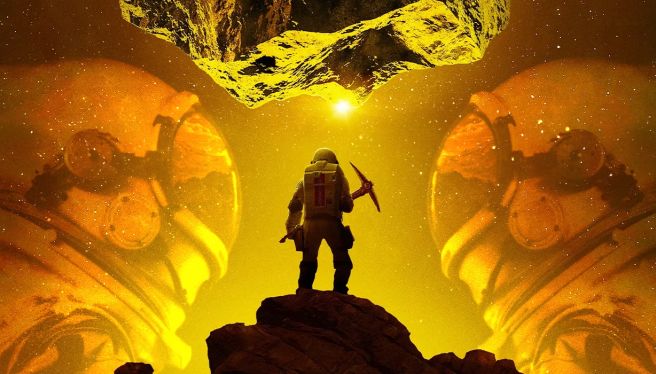
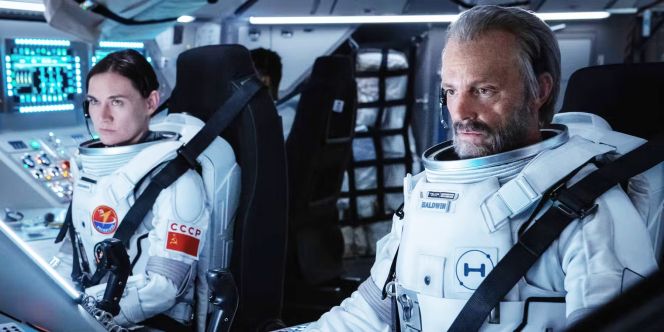
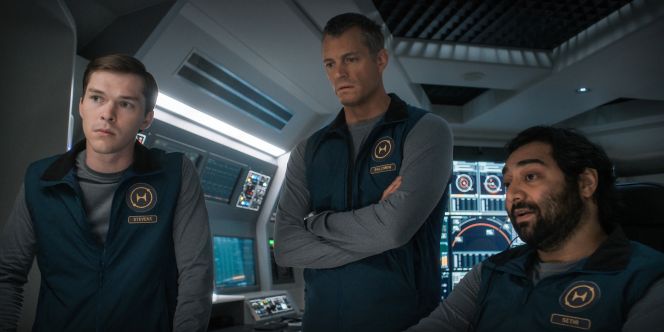
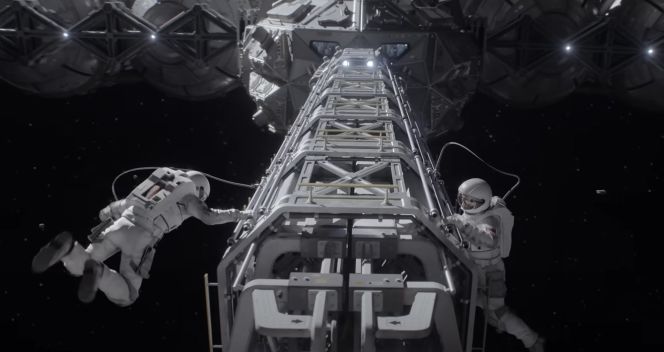

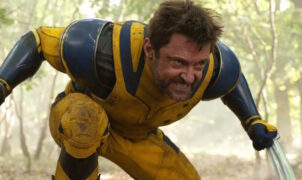












Leave a Reply